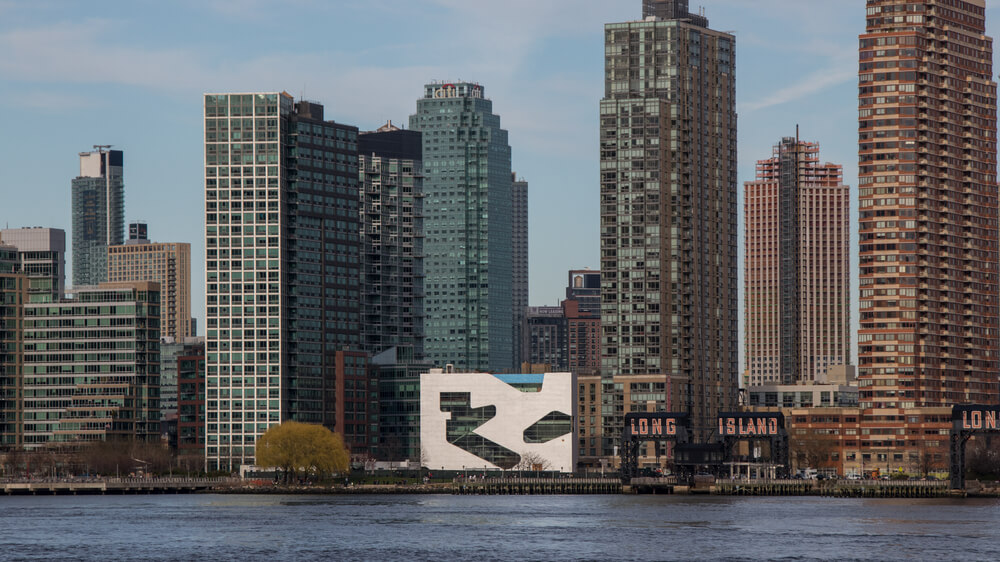Hiring Disability Consultants Can Save You Millions. Looking At You, Hunters Point Library.
The Hunters Point Library is the most expensive branch of the Queens Public Library ever built, but it’s not known for its books. It’s known for its stairs. The library has incredibly steep steps that allow for stunning views—for the visitors who can access them. There have been tons of complaints about the building, including about its inaccessibility. Many of these issues and headaches could have been avoided if the architects had hired a disability consultant.
A disability consultant is someone who is hired to provide input about accessibility and other issues that may affect disabled people. We have different backgrounds and can be hired based on specialization. For example, I have a lot of experience in the non-profit world, so one of the things I focus on is helping non-profits and other social justice organizations become more accessible. I have a disabled writer friend who specializes in sensitivity reading, so she is hired by (usually non-disabled) authors to help them make sure their portrayals of disability are accurate and not problematic. Depending on what disability-related insights you need, there is someone with the experience and knowledge to help. And while it’s not a requirement for disability consultants to be disabled, there is nothing that can substitute for lived experience.
I need to stress that this is a profession, and that disability consultants need to be paid for our work. Since the world we live in is often incredibly ableist, expertise on how to include disabled people is not valued, and we are frequently asked to do this work for free. Keep in mind that many of the people with the lived experience to offer the most useful guidance may not work for an agency or organization because of their disability-related needs.
However not all disability consultants are rooted in the same framework. There are many professional disability consulting agencies and individuals out there who can tell you how to be compliant with the law, but there are not nearly as many of us who incorporate Disability Justice principles into our work. Disability Justice is a set of ten principles identified by Patty Berne that include interdependence, intersectionality, and sustainability. Using this framework, the goal is not to just adhere to the laws around access and inclusion, but to meaningfully welcome disabled people as full participants and leaders.
Pretty much any attorney with expertise on the Americans with Disabilities Act (ADA)—like I am—can help make sure you follow specific building regulations and guidelines, but the ADA is just the bare minimum to be legally compliant. So, you end up with problems like the Long Island City Library, which technically complies with the ADA, but is still a nightmare for disabled people and a lot of nondisabled people too.
In fact, nondisabled people would also have greatly benefited from disability consultants taking part in the library project. Families with young children need space to navigate strollers, just as wheelchair users do. There are people who may not even identify as physically disabled, including aging folks, whose bodies cannot handle those stairs.
And even if you truly don’t care about accessibility, hiring a disability consultant just makes financial sense! The Long Island City Library initially cost $41.5 million dollars. I’m not sure how much how much these design mistakes will ultimately cost, but I can guarantee it will be much more than it would have cost to hire someone to avoid these mistakes in the first place. Although it’s after the fact, the Queens Public Library should at least learn from their mistakes and hire a disability consultant to help them remediate some of the problems.
For that matter, this library fiasco highlights why it’s so important to hire disabled people for non-disability specific jobs. A disabled architect would never have made this mistake. (And no matter what the architectural firm that worked on the library says, the inaccessibility of the library is indeed a mistake.)
Disabled people and disability consultants should be a routine part of the experts hired for any project or organization that wants to be accessible and welcoming to disabled people. We could even save you millions.
About Rooted In Rights
Rooted in Rights exists to amplify the perspectives of the disability community. Blog posts and storyteller videos that we publish and content we re-share on social media do not necessarily reflect the opinions or values of Rooted in Rights nor indicate an endorsement of a program or service by Rooted in Rights. We respect and aim to reflect the diversity of opinions and experiences of the disability community. Rooted in Rights seeks to highlight discussions, not direct them. Learn more about Rooted In Rights



